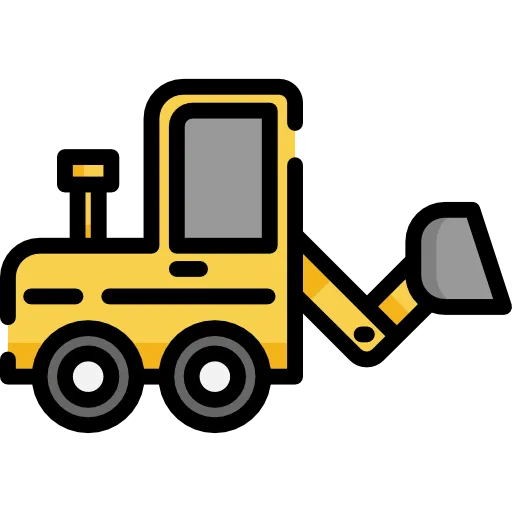
What's been your experience with pricing and timeline estimates from concrete contractors in the region?
We serve Van Zandt County, Smith County, Kaufman County, Anderson County, Henderson County, Wood County, Rusk County, Gregg County, and Cherokee County
You have likely navigated the complex landscape of hiring concrete contractors, where pricing and timeline estimates play a vital role in your decision-making process. Understanding the common practices and potential pitfalls in these estimates can significantly affect your project's outcome. Whether you encountered unexpected costs or delays in project completion, your experiences can shed light on the local industry standards. By sharing your insights, you contribute to a broader conversation that can benefit others in their quest for reliable contractors.
Key Takeaways:
Many clients report discrepancies between initial pricing quotes and final costs, highlighting the need for detailed assessments before project commencement.
Estimated timelines often fluctuate significantly due to weather conditions and availability of materials, leading to delays in project completion.
Communication with contractors is important for aligning expectations regarding both costs and timelines to achieve satisfactory outcomes.

Understanding Pricing Models
While navigating the world of concrete contracting, it's imperative to grasp the various pricing models available. Understanding these models helps set realistic expectations and makes it easier for you to compare estimates from different contractors. Common models include fixed pricing and hourly rates, each influencing how costs are structured and billed.
Fixed Pricing vs. Hourly Rates
Along the spectrum of pricing options, you'll find fixed pricing and hourly rates. Fixed pricing provides a clear, upfront cost for the entire project, allowing you to budget effectively. In contrast, hourly rates may be more flexible but could lead to unexpected expenses if the project runs longer than anticipated.
Factors Influencing Pricing
Influencing your project’s costs are several key factors, such as:
Material Costs
Labor Rates
Project Complexity
Site Conditions
Geographical Location
The total cost of your concrete project can significantly vary based on these factors, so it's vital to discuss them with potential contractors.
For instance, the type of materials you choose can greatly impact your overall budget. Higher-quality materials may offer better durability but typically come at a premium cost. Project complexity can also drive up labor rates, especially if you're considering unique designs or challenging site conditions. Additionally, your geographical location can affect pricing due to shipping costs or local market demand. The information from various contractors will give you a comprehensive understanding of these factors.
Timeline Estimates
Some clients have found that timeline estimates from concrete contractors can vary significantly based on the intricacies of the project. Clear communication with your contractor is vital to understanding how long your project may take. Always ensure you are aware of their proposed timeline and any potential adjustments that may arise during the process.
Typical Project Durations
One common aspect of working with concrete contractors is that typical project durations can range widely depending on the scope. Simple jobs, like driveway installation, might take only a couple of days, while more complex tasks, such as large patios or foundations, could extend for weeks.
Factors Affecting Timelines
The timeline for your project can be influenced by various factors that you should consider before starting. Key elements include:
Project Size
Weather Conditions
Site Preparation
Material Availability
Assume that a larger project, like a full patio, will take longer due to these factors.
Even small details can have an impact on your project's timeline. For instance, if your site requires significant preparation work, this can lead to delays. Similarly, inclement weather can hinder progress, especially during rainy seasons or extreme temperatures. Be aware that if your contractor is waiting on materials, it can push back the start time. In all cases, clear communication with your contractor about your expectations will help navigate any unexpected hurdles. Assume that proper planning sets the tone for a smoother experience.
Regional Variations in Costs
Keep in mind that pricing for concrete work can vary significantly depending on your location. Factors such as local labor rates, material availability, and regional demand for concrete services all contribute to these fluctuations. It’s important for you to research and compare quotes from various contractors in your area to ensure you are getting a fair price.
Urban vs. Rural Pricing
After conducting research, you may find that urban areas generally have higher costs for concrete services compared to rural settings. This discrepancy often stems from increased labor rates, transportation costs, and the demand for specialty concrete work in cities. In contrast, rural areas might offer lower prices due to reduced operational costs and less market competition.
Seasonal Considerations
Urban areas often experience fluctuations in concrete pricing based on the season. Prices may soar in peak construction months when demand is high and contractor availability is limited. Timing your project to align with off-peak seasons can yield better pricing options and more contractor availability.
Another factor affecting pricing is the seasonal weather conditions. During winter, cold temperatures can lead to delayed projects and increased costs due to special heating requirements for concrete. Conversely, spring and summer months typically see heightened costs due to demand peaks. By planning around these factors, you can be strategic in avoiding potential pitfalls in pricing and project timelines.

Common Challenges with Estimates
After discussing your project, many homeowners find that pricing and timeline estimates from concrete contractors can vary widely. This lack of consistency often leads to confusion and frustration. Inadequate assessments of your project can result in a final bill that exceeds your budget or a timeline that drags on longer than anticipated. Understanding these challenges can help you navigate the estimation process more effectively.
Communication Gaps
Above all, communication gaps between you and your contractor can lead to misunderstandings and inaccurate estimates. When details of your project aren't clearly conveyed or discussed, it can result in miscalculations, leaving you with unexpected challenges down the road.
Unexpected Costs and Delays
About 70% of homeowners experience unexpected costs and delays during their concrete projects. These can stem from hidden site conditions, permitting issues, or even weather-related disruptions. When initial estimates don't account for these factors, you may find yourself facing budget overruns or extended wait times.
With any concrete project, it's important to anticipate potential issues that can lead to both unexpected costs and delays. Factors such as soil conditions, material availability, and even local building regulations can impact your project plan significantly. If not thoroughly assessed during the estimation phase, these can escalate costs and prolong the timeline. By proactively discussing these possibilities with your contractor, you can minimize surprises and create a more accurate budget and schedule for your project.
Strategies for Accurate Estimates
Despite the challenges in obtaining reliable pricing and timeline estimates from concrete contractors, employing a few strategic approaches can significantly improve your experience. Start by gathering comprehensive information to establish a clear scope of work, while ensuring you communicate your expectations precisely to contractors. This will help align their estimates with your project requirements.
Researching Contractors
Below are some effective ways to research contractors in your area. Begin by seeking recommendations from friends or family who have undertaken similar projects. Additionally, check online reviews and ratings to gauge the reputation and reliability of various contractors. A thorough examination of their past work and client feedback can provide valuable insights.
Requesting Detailed Quotes
Estimates should clearly detail the scope of work, materials, and labor involved in your concrete project. When soliciting quotes from contractors, make sure you ask for a breakdown of all costs to avoid any unexpected expenses later on.
In fact, a well-drafted quote serves as an crucial reference point that outlines all aspects of your project, including material costs, labor charges, and timelines. By requiring contractors to provide thorough, itemized estimates, you empower yourself to make informed decisions. This practice not only helps prevent surprise fees during the project but also enhances transparency, which is vital for maintaining a good relationship with your contractor. A solid quote sets the groundwork for accountability and trust, ensuring that you both are on the same page regarding project expectations.
Customer Experiences and Testimonials
Many customers have seen a wide array of experiences with concrete contractors in the region. From punctual service to unexpected delays, these experiences can significantly impact your project when choosing the right contractor for your needs.
Positive Experiences
Customer feedback often highlights the reliability and professionalism of certain contractors. Many report that their projects were completed on time and within budget, allowing for a smooth construction experience. Clients appreciate clear communication, which contributes to a strong working relationship and ultimately satisfying results.
Negative Experiences
About some clients, however, have faced challenges that should not be overlooked. Instances of inconsistency in pricing and unexpected timeline delays have left many feeling frustrated and disappointed.
This can happen when contractors underestimate project requirements or fail to communicate changes effectively. These miscommunications can lead to increased costs that strain your budget. Additionally, poor workmanship in some cases has resulted in requiring more repairs, further extending timelines and causing stress. Therefore, it's crucial to thoroughly vet contractors and communicate expectations clearly to avoid such pitfalls.

Summing up
To wrap up, your experiences with pricing and timeline estimates from concrete contractors in the region can vary significantly. You'll find that transparency in costs and realistic timeframes are imperative for ensuring your project's success. It’s advisable to gather multiple quotes, ask for detailed breakdowns, and communicate your expectations clearly to avoid any surprises. By doing so, you can make informed decisions that meet your budget and timeline needs, ultimately leading to a satisfactory outcome for your concrete projects.
Q: What factors have impacted pricing estimates from concrete contractors in my area?
A: Pricing estimates from concrete contractors can vary significantly due to several key factors. These include the complexity of the project, the type of concrete required, local labor costs, and current market demand. For example, specialized finishes such as stamped or colored concrete generally incur higher costs than standard options. Additionally, if your project requires extensive preparation work, such as excavation or grading, this can also elevate the overall price.
Q: How can I ensure that the timeline estimates provided by concrete contractors are realistic?
A: To gauge the accuracy of timeline estimates, it's advisable to request a detailed project plan from the contractor. This plan should include the timeline for each phase of the project, taking into account weather conditions and material availability. Engaging with multiple contractors for comparative timelines can also offer insight into what is reasonable based on their experiences. Additionally, open communication throughout the project can help address any unforeseen delays as they arise.
Q: Are there common delays that I should anticipate from concrete contractors, and how can they affect the pricing?
A: Yes, some common delays that might affect your project include weather-related issues, permitting holdups, and resource shortages. Weather plays a significant role in concrete work, as extreme temperatures can delay pouring and curing times. Such delays can lead to additional costs if the contract was structured to accommodate specific timelines. It's beneficial to discuss potential contingencies with your contractor up front, so you can budget accordingly should any delays occur.



















